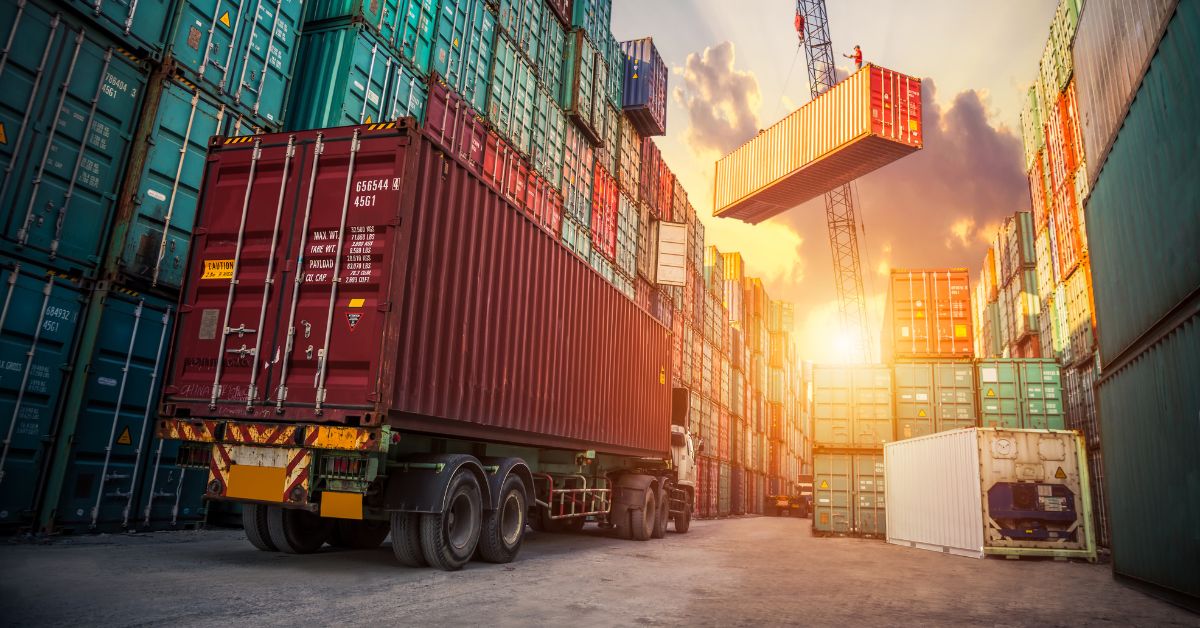
Logistics is no longer viewed as a background function; it’s a driving force behind operational success and customer satisfaction. In 2025, logistics has evolved into a strategic differentiator that directly impacts business growth. With rising consumer expectations and increasingly complex supply chains, businesses are prioritizing logistics as a central part of their business models.
From transportation and freight forwarding to smart brokering and specialized services, today’s logistics solutions are built to fuel scalability, performance, and resilience. This shift marks a new era where logistics isn’t just about movement. It’s about momentum.
Trucking Companies as Growth Partners
In the past, trucking was a means to an end—moving goods from one place to another. Now, trucking companies are positioned as strategic partners that help businesses expand their reach, reduce delivery times, and manage costs through optimized transport solutions.
These companies are leveraging technology to offer real-time updates, improve safety standards, and enhance driver productivity. Businesses working with innovative trucking providers gain a logistical edge that supports faster market entry and more reliable service levels.
Freight Forwarding Services Powering Global Expansion
Businesses looking to scale into international markets must rely on robust freight forwarding services to manage cross-border logistics. These services simplify the complexities of international trade, handling documentation, customs, cargo insurance, and coordination between multiple carriers.
In a globalized economy, freight forwarding is no longer a niche service—it’s a foundational element for growth. By eliminating delays and streamlining multi-modal logistics, these providers support seamless expansion into new regions and customer segments.
Flatbed Trucking Services for Industrial Expansion
Infrastructure, energy, and manufacturing projects require heavy and oversized freight solutions that traditional shipping can’t handle. That’s where flatbed trucking services come in. These services offer the flexibility needed for equipment, machinery, and large-scale components essential to growing industrial operations.
As investment in infrastructure and construction projects surges in 2025, flatbed trucking plays a crucial role in supporting business scale. From local projects to nationwide rollouts, flatbed transport provides the durability and customizability needed for reliable delivery.
The Rise of Regional Intelligence with Texas Freight Brokers
Growth-minded companies are turning to regional experts like Texas freight brokers to gain real-time insight and logistical agility. These brokers connect businesses with the right carriers, negotiate rates, and navigate regional challenges with unmatched expertise.
Rather than relying on national chains with generic solutions, companies are choosing brokers who understand local markets and can provide tailored strategies. In a competitive landscape, this localized intelligence enables smarter decisions and faster execution.
Digital Transformation in Logistics
Technology is revolutionizing every corner of the logistics industry. Cloud-based tracking systems, AI-driven demand forecasting, and autonomous delivery vehicles are becoming more mainstream. This digital evolution enables companies to anticipate disruptions, optimize routes, and reduce delivery windows.
Investing in logistics tech is no longer optional; it’s a core business decision. Companies that integrate digital tools into their logistics strategy experience faster turnaround, improved communication, and better customer satisfaction.
Logistics as a Competitive Advantage
Speed, consistency, and adaptability are core components of any growth strategy, and logistics enables all three. With the right providers and systems in place, companies can reduce overhead, improve service delivery, and gain visibility across their entire supply chain.
Logistics is increasingly being used to support key business outcomes—from reducing return rates to enabling faster product launches and entering new markets. The more integrated the logistics strategy, the more efficiently a business can scale.
Sustainable Growth Through Green Logistics
Sustainability has become a key driver of consumer decisions and business operations alike. Companies are embedding sustainability into their logistics processes through energy-efficient fleets, optimized routing, and eco-friendly packaging.
Green logistics doesn’t just help the environment—it improves long-term profitability by reducing waste and attracting conscious consumers. Businesses that prioritize sustainability in their logistics are also better positioned for future regulations and industry standards.
Navigating Uncertainty with Agile Logistics
Uncertainty remains a constant challenge, whether it’s due to weather, political changes, or supply chain bottlenecks. In 2025, businesses are building logistics frameworks that are agile, responsive, and decentralized.
By working with flexible logistics partners and adopting scenario planning, companies can better navigate disruptions and maintain service continuity. Agility is no longer a reactive measure; it’s a strategic approach to resilience and growth.
Frequently Asked Questions
Why is logistics considered a business growth strategy in 2025?
Logistics impacts delivery speed, cost control, and customer experience. These factors directly influence a business’s ability to scale and compete.
What role do trucking companies play in business expansion?
Trucking companies provide reliable transport solutions that help businesses reach new markets, deliver on time, and manage distribution efficiently.
When should companies use freight forwarding services?
Freight forwarding is essential for businesses involved in cross-border trade or managing complex international shipments.
What kind of freight is best suited for flatbed trucking?
Flatbed trucking is ideal for heavy, oversized, or irregularly shaped items such as machinery, construction materials, and large equipment.
How do freight brokers in Texas help regional operations?
Texas freight brokers offer localized expertise, carrier connections, and route planning support that improve delivery efficiency across the state.
Can sustainable logistics really benefit the bottom line?
Yes, sustainable practices reduce fuel costs, packaging waste, and regulatory risk, while also boosting brand reputation and consumer trust.





